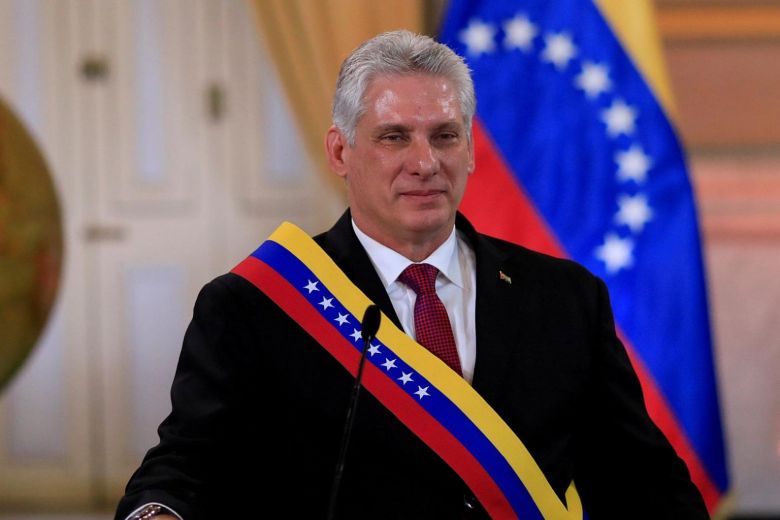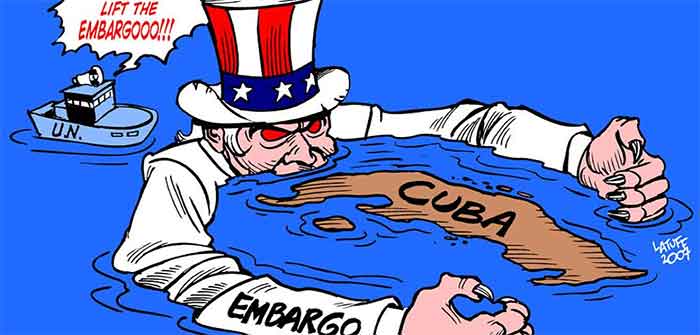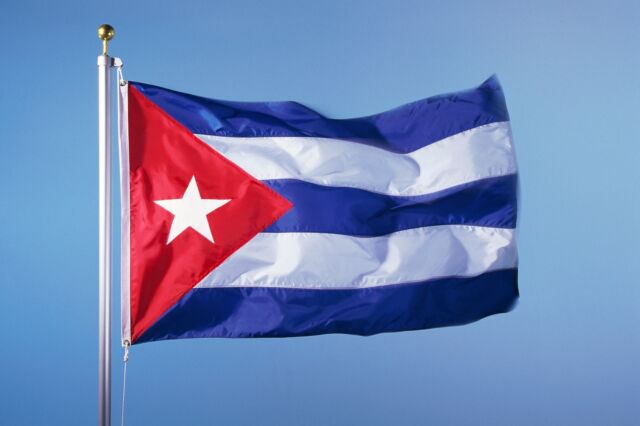
Cuba’s National Assembly said on Wednesday it “strongly condemns” a resolution by the European Parliament, which criticized the country’s human rights record and called for EU sanctions against Cuban President Miguel Diaz-Canel and other top officials.
“The European Parliament lacks the moral, political and legal authority to judge Cuba,” Cuba’s parliament said in a statement. “This could cast doubt on the EU’s objectives of seeking to re-launch its relations with Latin America and the Caribbean.”
A Reuters report said:
EU leaders will meet in Brussels next week with heads of state of the Community of Latin American and Caribbean States (CELAC), their first bi-regional summit in eight years.
They are expected to discuss issues such as climate change, development funding and Haiti’s security crisis. Cuba on Monday said it wanted stronger relations but accused the EU of being opaque and manipulative in its preparations.
The European Parliament resolution proposes “autocratic regimes should not participate in such summits” and strongly condemns Cuba’s human rights record, saying this could jeopardize a 2016 cooperation deal between Cuba and the EU, its top trade partner.
It also calls for the “immediate and unconditional release” of “unjustly detained prisoners”. Hundreds of Cubans remain in jail following anti-government protests in July 2021, the largest since Fidel Castro’s 1959 revolution.
Cuba’s Communist government says those jailed committed crimes including assault, vandalism and sedition.
The EU’s top diplomat Josep Borrell visited the island in May where he criticized the U.S. over its 60-year trade embargo and said the EU had “neither the capacity nor the will to impose changes in Cuba.” The European Parliament resolution said it “deeply deplores” this comment.
Cuba’s National Assembly, in turn, called the resolution “highly interfering”.
In May, Borrell said the EU Special Representative for Human Rights, Eamon Gilmore, will visit the island in November to evaluate the consequences of the 2021 protests.
Cuban Government Calls U.S. Nuclear Submarine Stop A Provocative Escalation
An ABC News report said:
The Cuban Foreign Ministry on Tuesday called the stop by a U.S. nuclear-powered submarine at the U.S. naval base at Guantanamo Bay a “provocative escalation.”
The U.S. nuclear-powered submarine, the USS Pasadena, stopped at the naval base in Guantanamo Bay earlier this month, the Cuban Foreign Ministry said. A U.S. Navy spokesperson told ABC News it was a “scheduled logistics stop” as the submarine transits to Colombia to participate in a multinational maritime exercise.
“The Ministry of Foreign Affairs strongly rejects the arrival of a nuclear-powered submarine in Guantanamo Bay on July 5, 2023, that stayed until July 8 at the U.S. military base located there, which is a provocative escalation of the United States, whose political or strategic motives are not known,” the statement read.
“The presence of a nuclear submarine there at this moment makes it imperative to wonder what is the military reason behind this action in this peaceful region of the world,” the statement continued.
The U.S. government notified the Cuban government that the submarine would stop in Guantanamo Bay on the morning of July 5, a U.S. Navy spokesperson said.
“This is not without precedent. Other nuclear-powered submarines have stopped at Guantanamo before without incident,” the spokesperson added.
On the other side of the island, a Russian naval vessel arrived at Havana’s port on Tuesday.
The naval vessel — a Russian training ship named the Perekop – entered the port carrying “humanitarian aid, as well as equipment delivered directly from the Russian Museum of St. Petersburg for multimedia exhibitions at the Museum of Fine Arts of Havana,” Rossiyskaya Gazeta, the official state newspaper of Russia, reported.
The Perekop traveled across the Atlantic Ocean from the Russian port city of Kronshtadt to the Caribbean Sea. It departed Russia on June 20 and arrived in Cuba on July 11. The ship will go on to make other stops in the Caribbean, South America and Africa before returning to Russia in September, the Russian Defense Ministry said.
The presence of the Russian naval ship on Cuba’s shores is a sign of increased diplomatic relations between the two nations.
Cuba, which was hit hard by the pandemic, has been experiencing severe shortages of basic goods like food and gas for months.















































